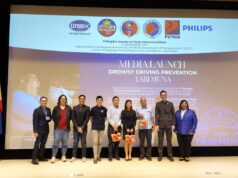Advocacy group calls for plan to connect gov’t, industries in workforce training
By Gillian M. Cortez
EDUCATION advocacy group Philippine Business for Education (PBEd) calls on the government to establish a workforce development plan that would help boost economic growth.
“Workforce Development is an interconnected set of solutions that aligns education and training to national competitive needs. It is an international approach that brings together multiple sectors to ensure that the workforce is equipped with the skills that are relevant to the economy,” PBEd executive director Lovelaine B. Basillote said in a press briefing on Monday.
“The objective, in the end, is to enable people to get the right jobs,” she added.
Ms. Basillote said PBEd is “pushing for the alignment of education and national competitive level goals.”
“While other countries have been investing in people, connecting education to their economy (The Philippines has still remained)stagnant,” she pointed out.
PBEd said in a press statement, “Studies show that economies with sustained economic growth have high knowledge capital. Another common thing that these economies share is an established workforce development plan.”
Ms. Basillote reported that “Actual investments in education don’t translate to actual learning.”
PBEd reported that “getting a degree does not automatically result in work-readiness or employability.” The organization added that college graduates compose “22% of all unemployed Filipinos.”
“We’re seeing a lot of people unemployed; the youth, the educated,” Ms. Basillote said. “But the jobs are there. How do we make sure that education does lead to employment?”
“Workforce development is not just the problem of the education sector nor is it just the problem of employers. It’s really that interrelation, (along) with government, that brings them all together,” she said.
PBEd said that while producing a workforce development plan “may take time,” the organization presented “multiple areas that all actors can pursue.”
For government, Ms. Basillote said it should have “a national labor market intelligence system.” She noted that although the Department of Labor and Employment(DoLE) already has its own system, “it could be further developed. We could look to other countries to see what those models could be.”
She said PBEd urges industries “to articulate skills demands and competencies.” She stressed that the academe shouldn’t only be responsible in formulating curricula but it’s also the responsibility for the employers to also be involved in this process as well.
The Philippine Qualifications Framework is also a window of opportunity to commit goals of improving national competitiveness that industry and government should take advantage of.
“They’re already developing the implementing rules and provisions for the Philippine Qualifications Framework(PQF) National Coordinating Council,” Ms. Basillote said.
She added, “That’s actually a way for both industry and academe to identify the standards for skills, knowledge and values.”
She said there is a provision in the PQF that says “Industry needs to be represented in the council (and) PBEd strongly supports that.”
PBEd is also currently in talks with the Commission on Higher Education(CHED) regarding “a new CMO(CHED Memorandum order) for the participation of industry (to) be institutionalized.” She said although there is industry participation, it still “is not consistent” and hopefully the CMO will institutionalize that industry participation in training.
“With fast-paced technological advancements and the Fourth Industrial Revolution upon us, it is high time for our country to prioritize the prosperity of every Filipino by investing in the workforce–investing in the future,” the PBEd executive director said.



